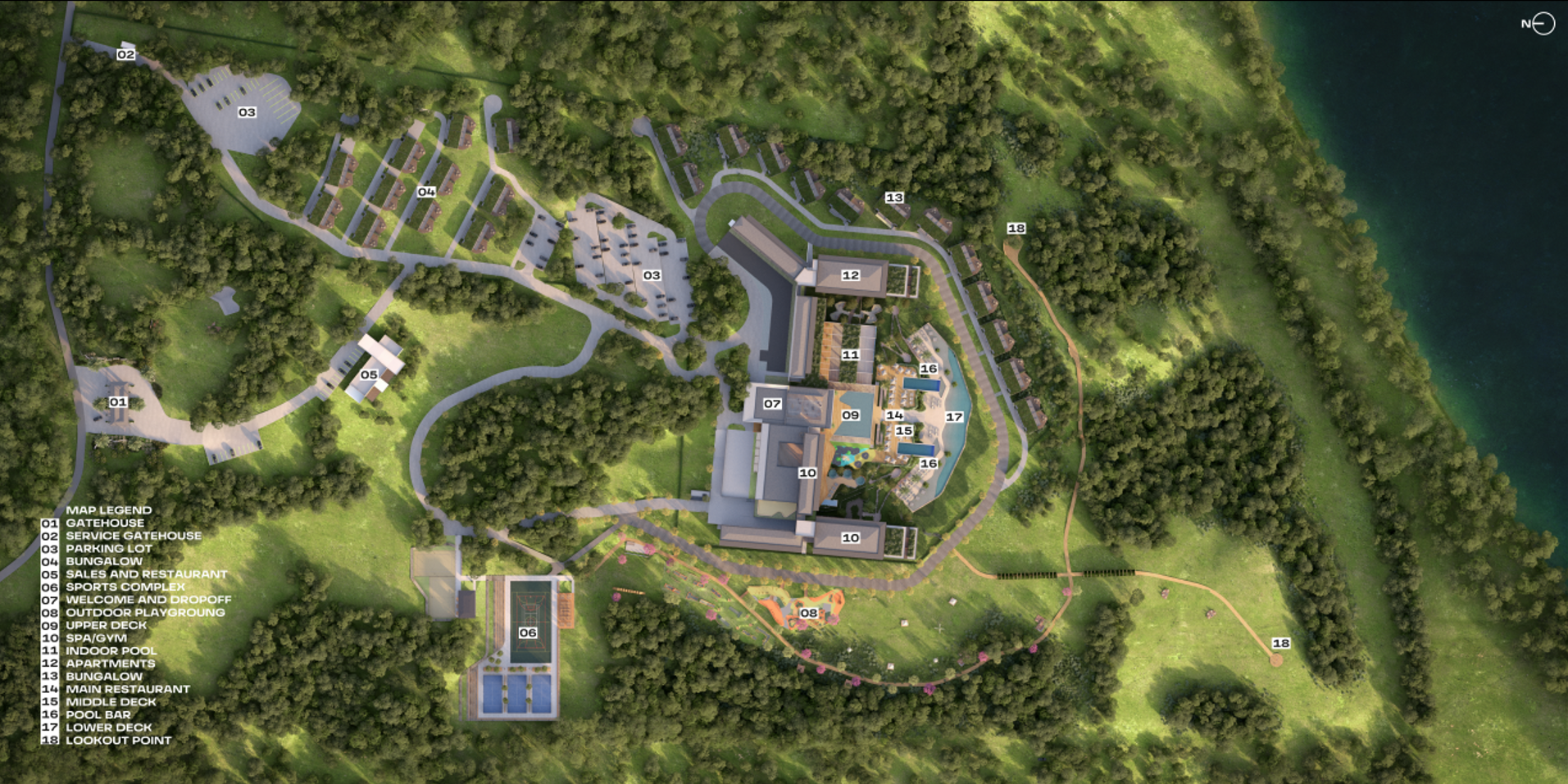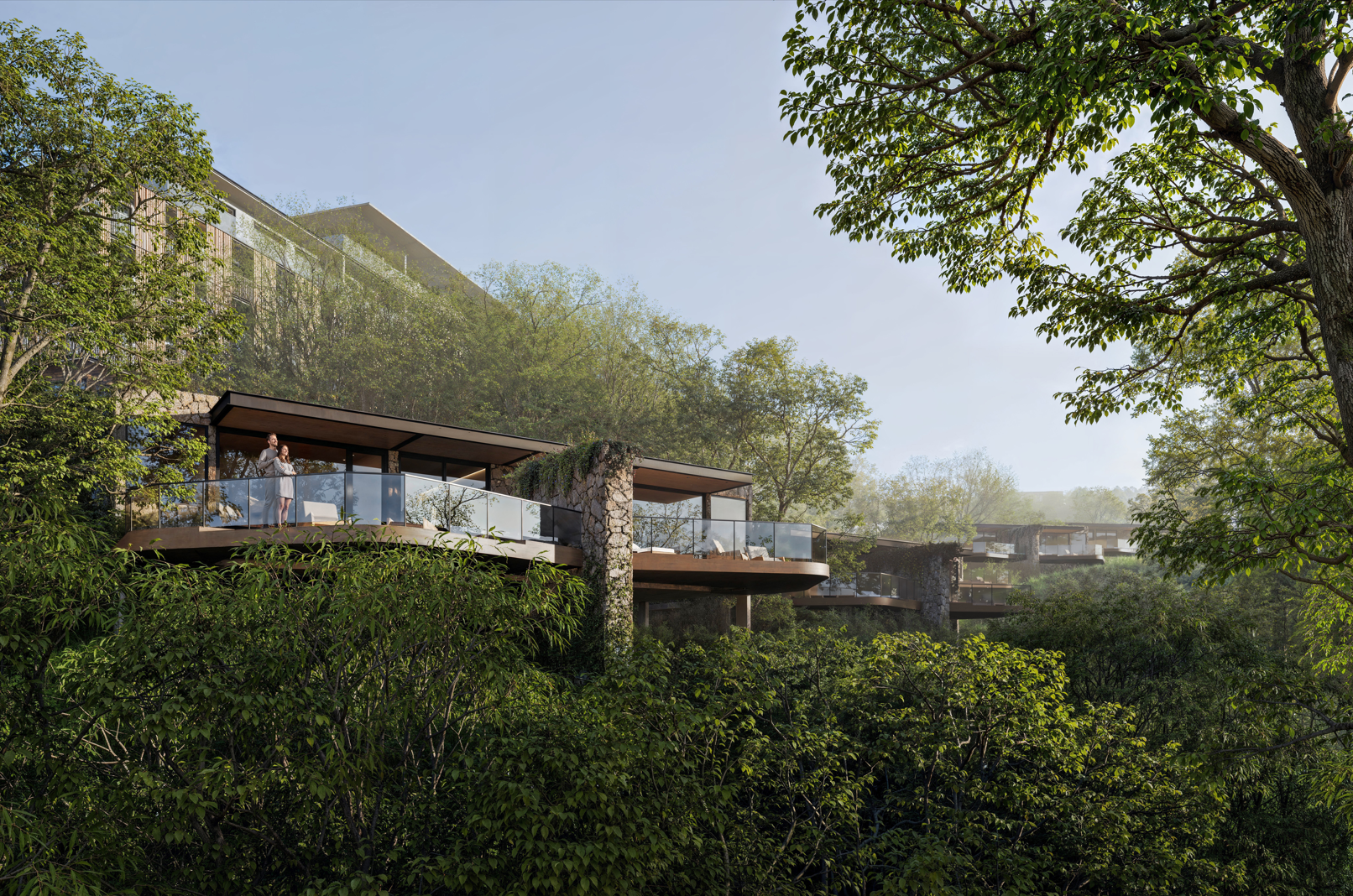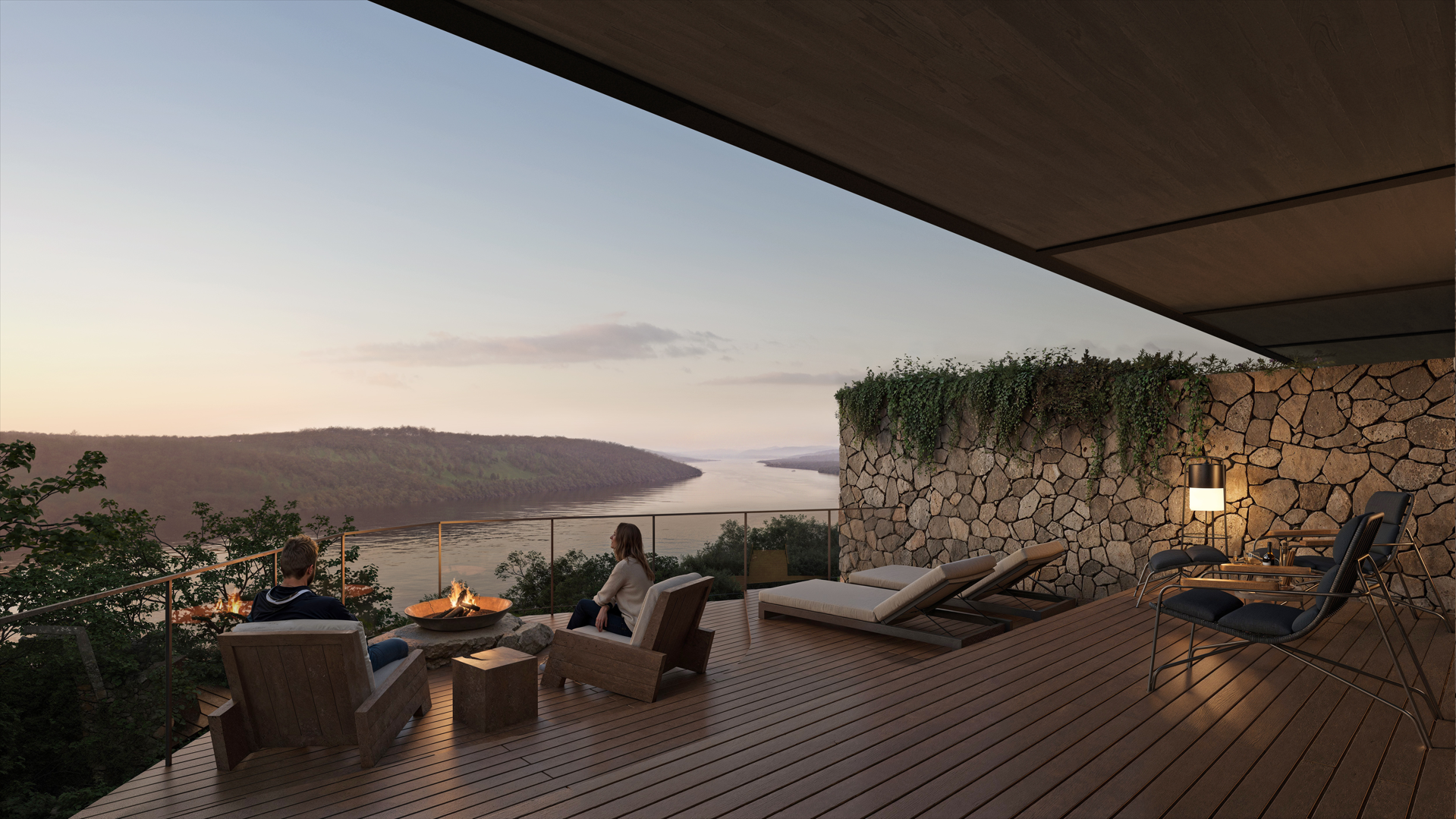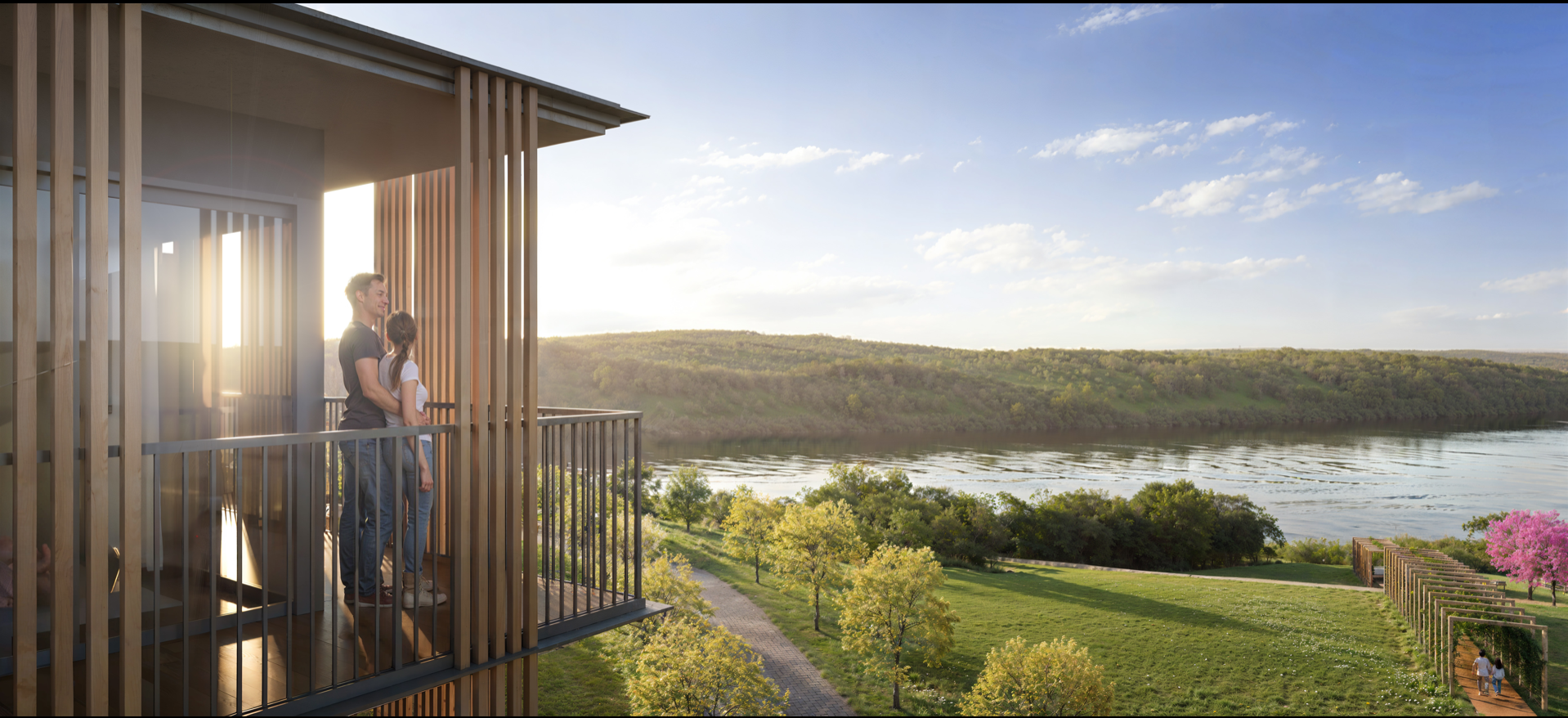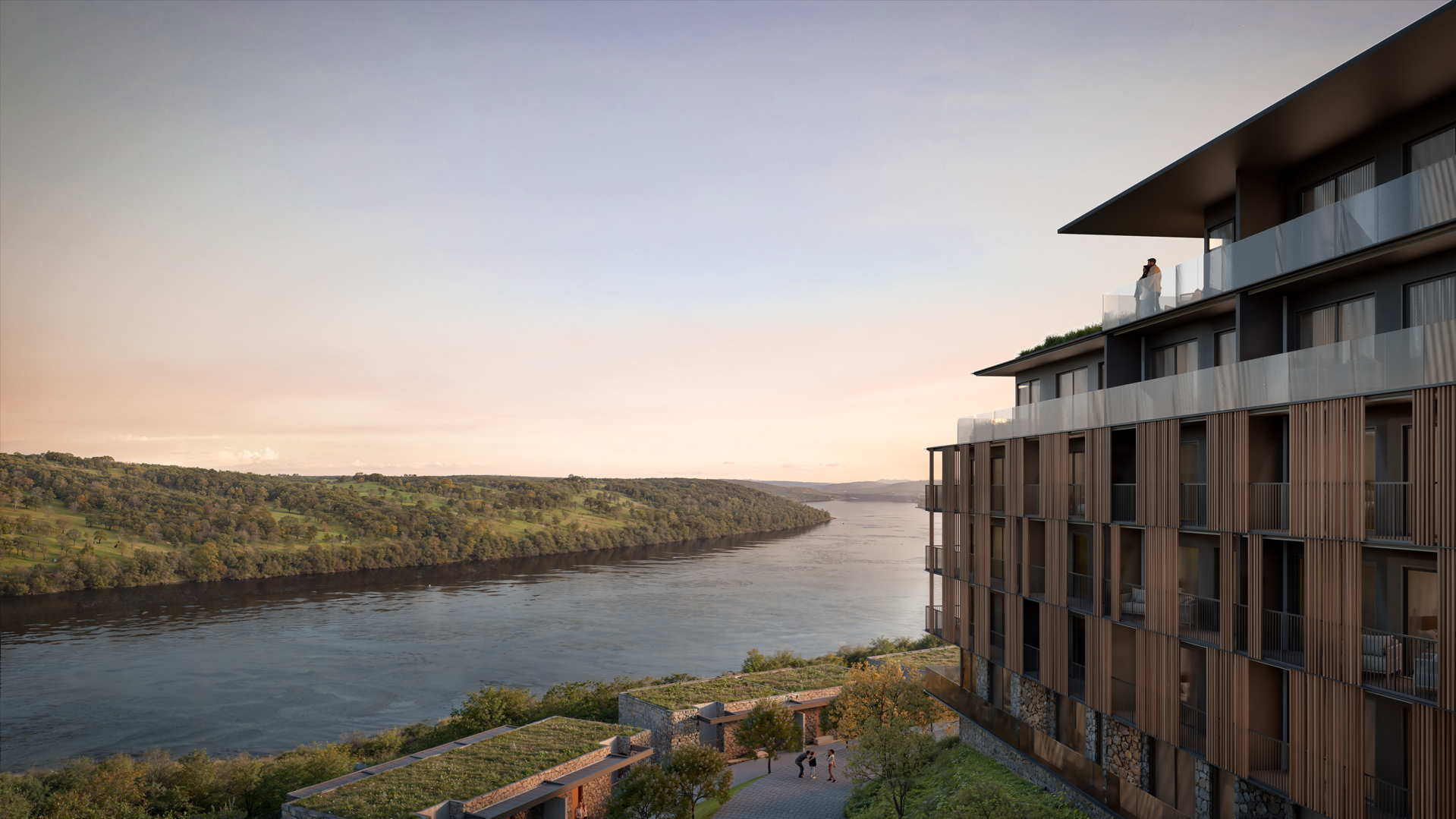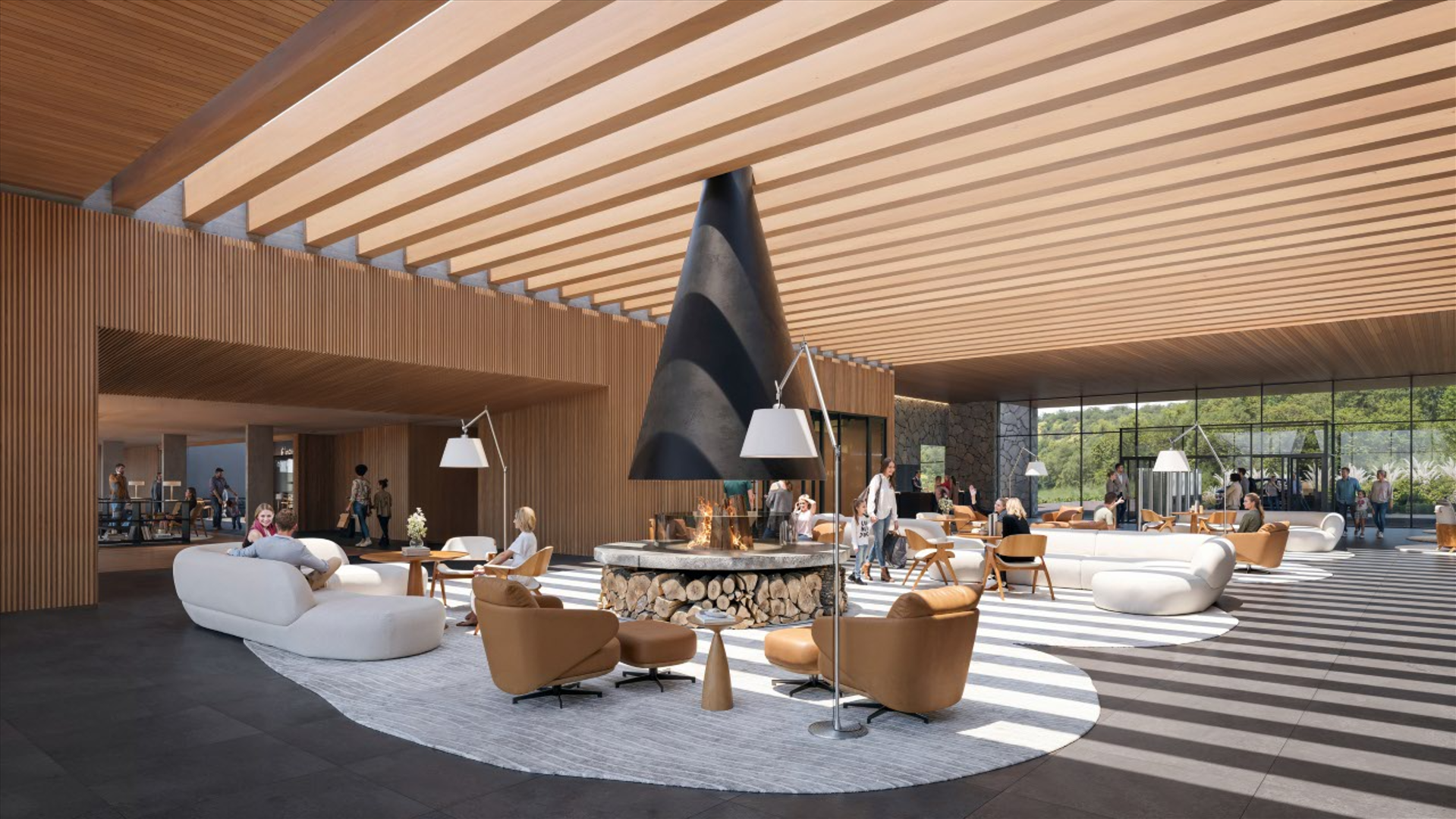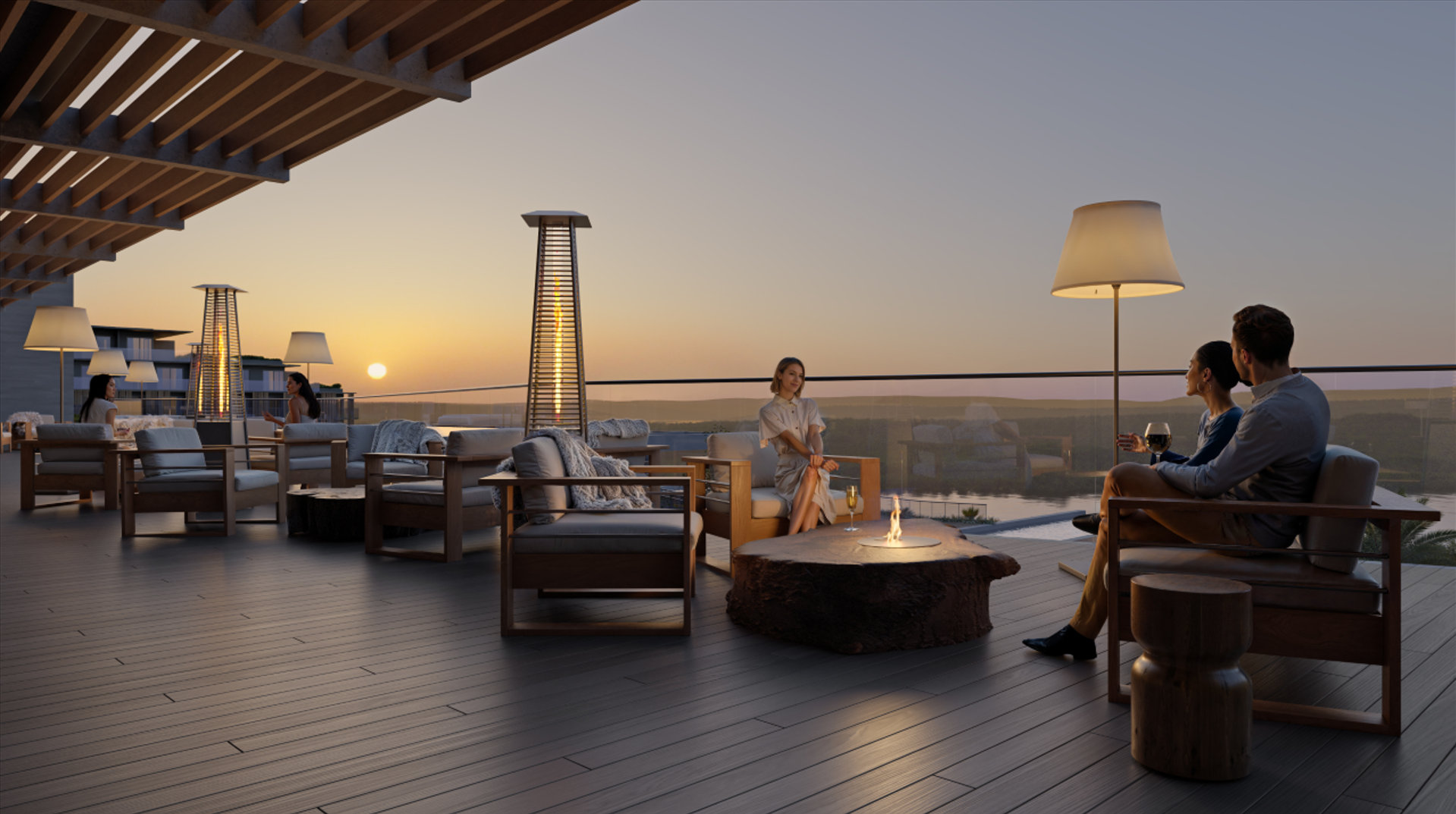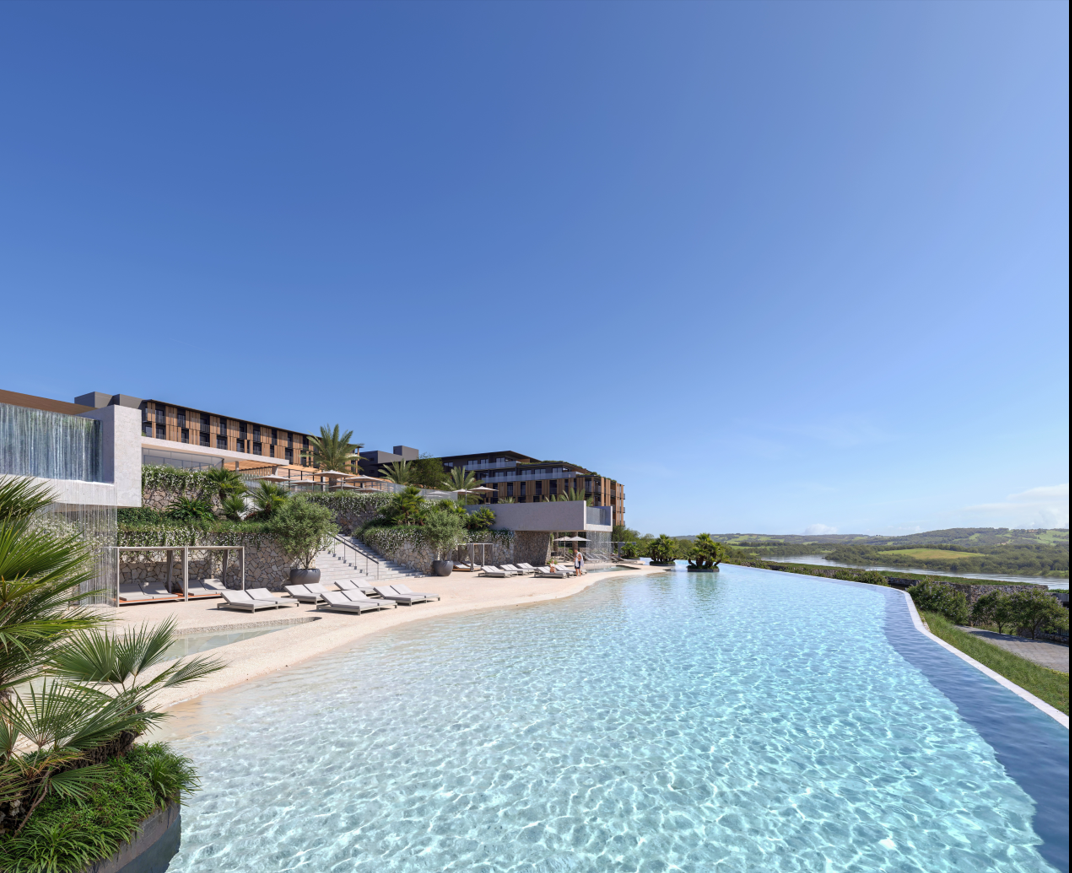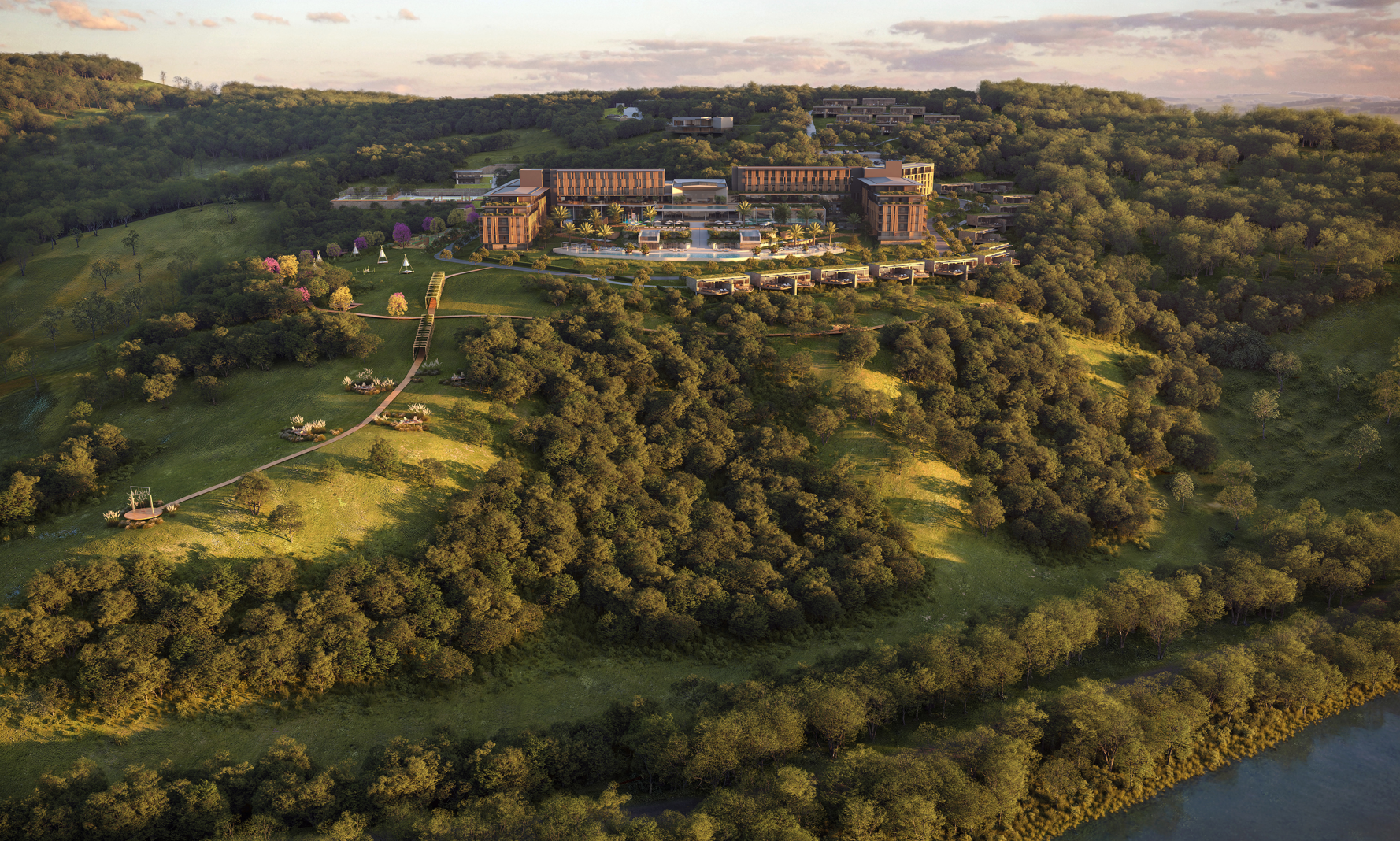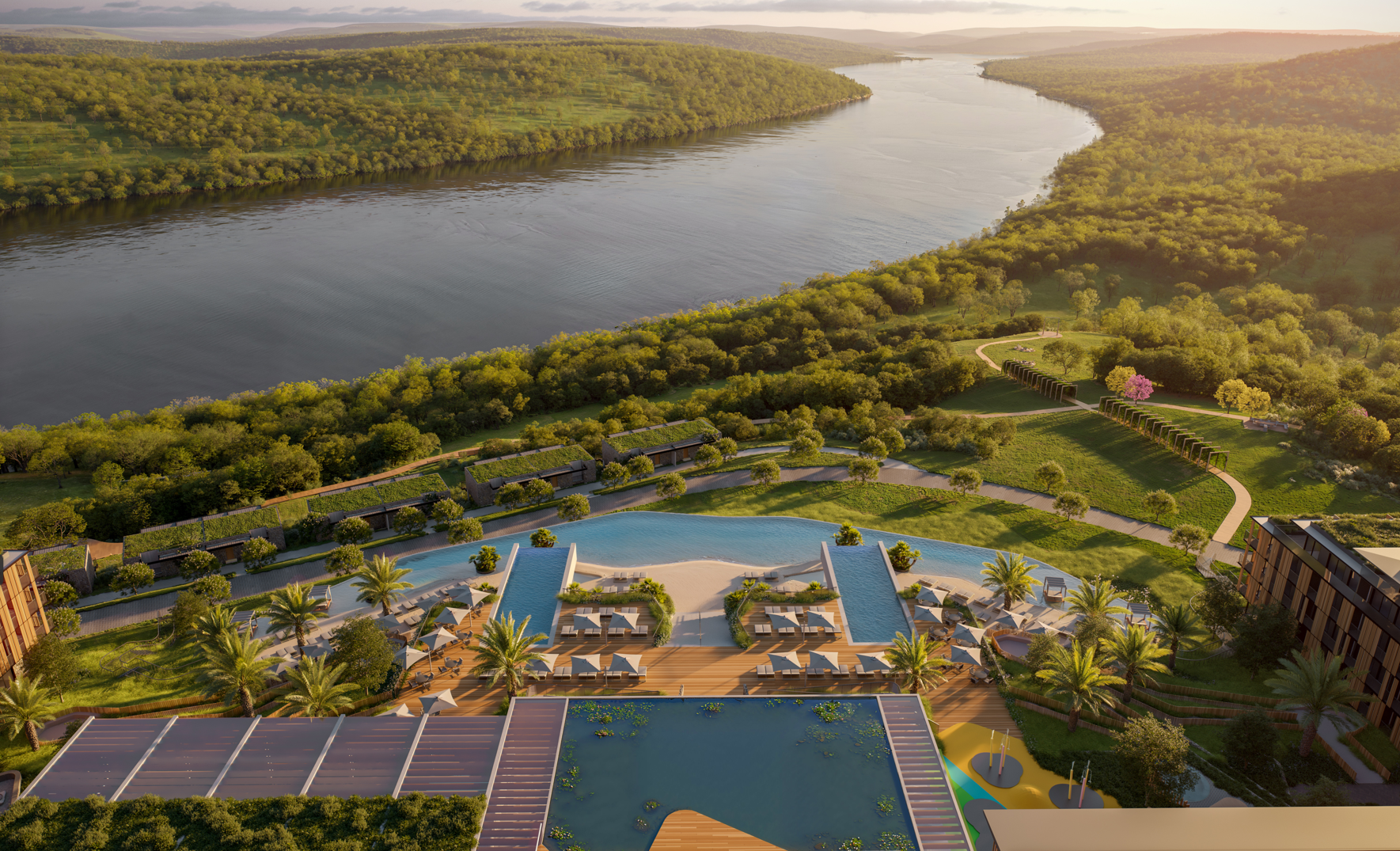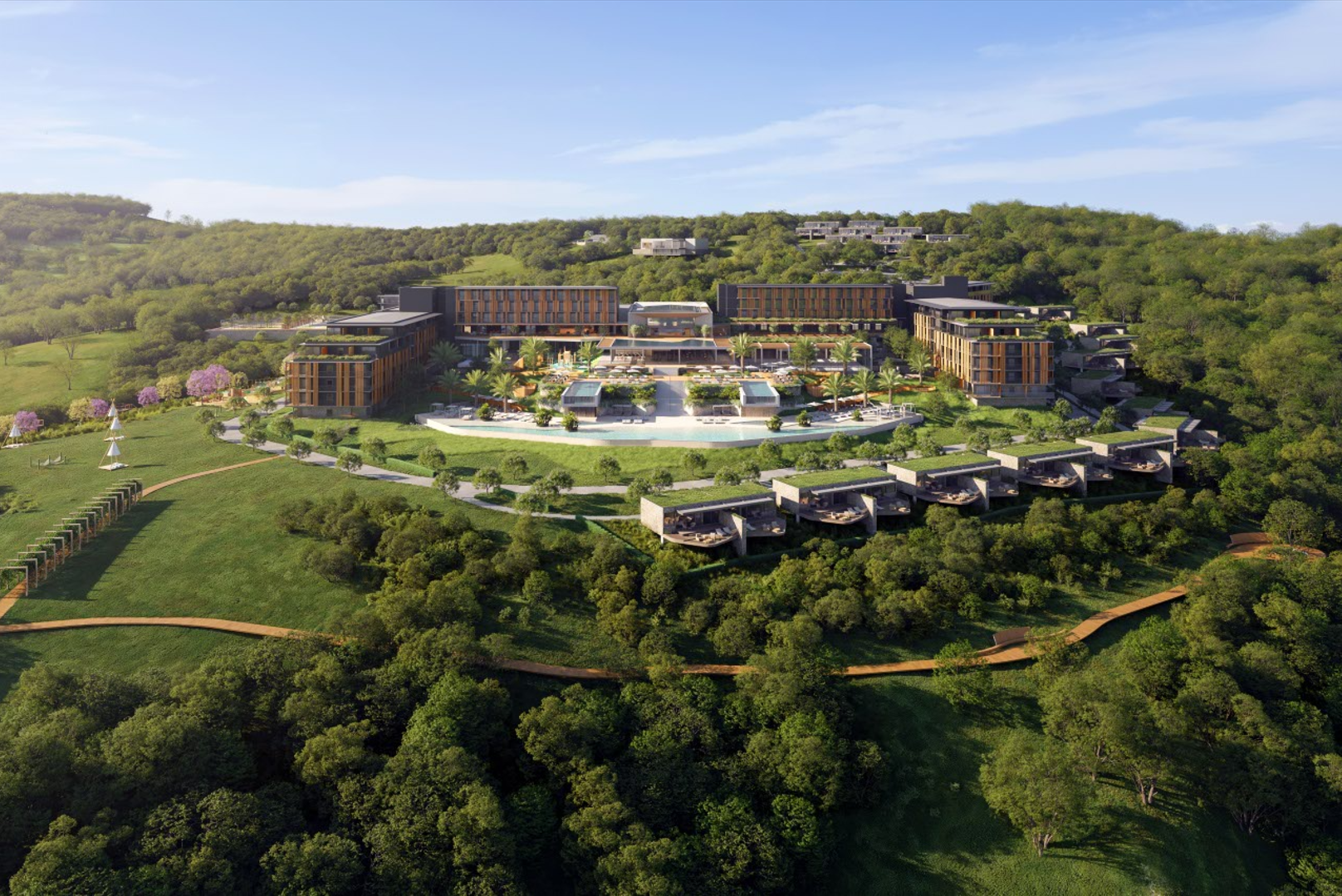
Costana is a sensorial retreat set above the Uruguay River, along the Brazil-Argentina border, in a region marked by Guarani heritage and Jesuit mission history. Despite its cultural and natural richness, the area lacks high-end hospitality infrastructure that reflects its identity. The project addresses this gap through architecture that respects and reinterprets local traditions. Inspired by vernacular costeiros—riverside huts—the design avoids pastiche, translating their spatial intelligence into elevated terraces and a continuous wooden skin. This element buffers thermal variations (3°C to 31°C) and prevailing winds while evoking the gaucho ritual of sharing chimarrão in shaded, semi-open spaces. The spatial strategy follows transatlantic ship logic: the upper deck houses reception and a panoramic restaurant; the middle contains indoor leisure areas; and the lower opens to cascading pools inspired by Salto do Yucumã. Private bungalows are embedded in terraced topography, ensuring immersion and privacy. A mirrored water ceiling crowns the restaurant, reflecting light and river imagery, blurring boundaries between architecture, nature, and memory.
